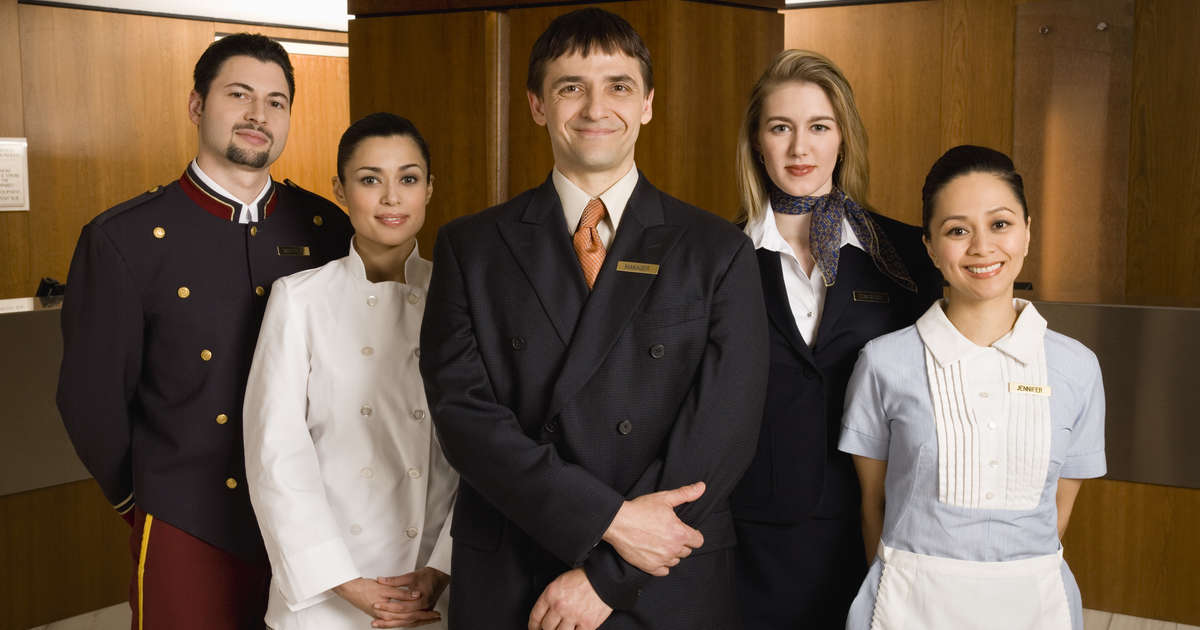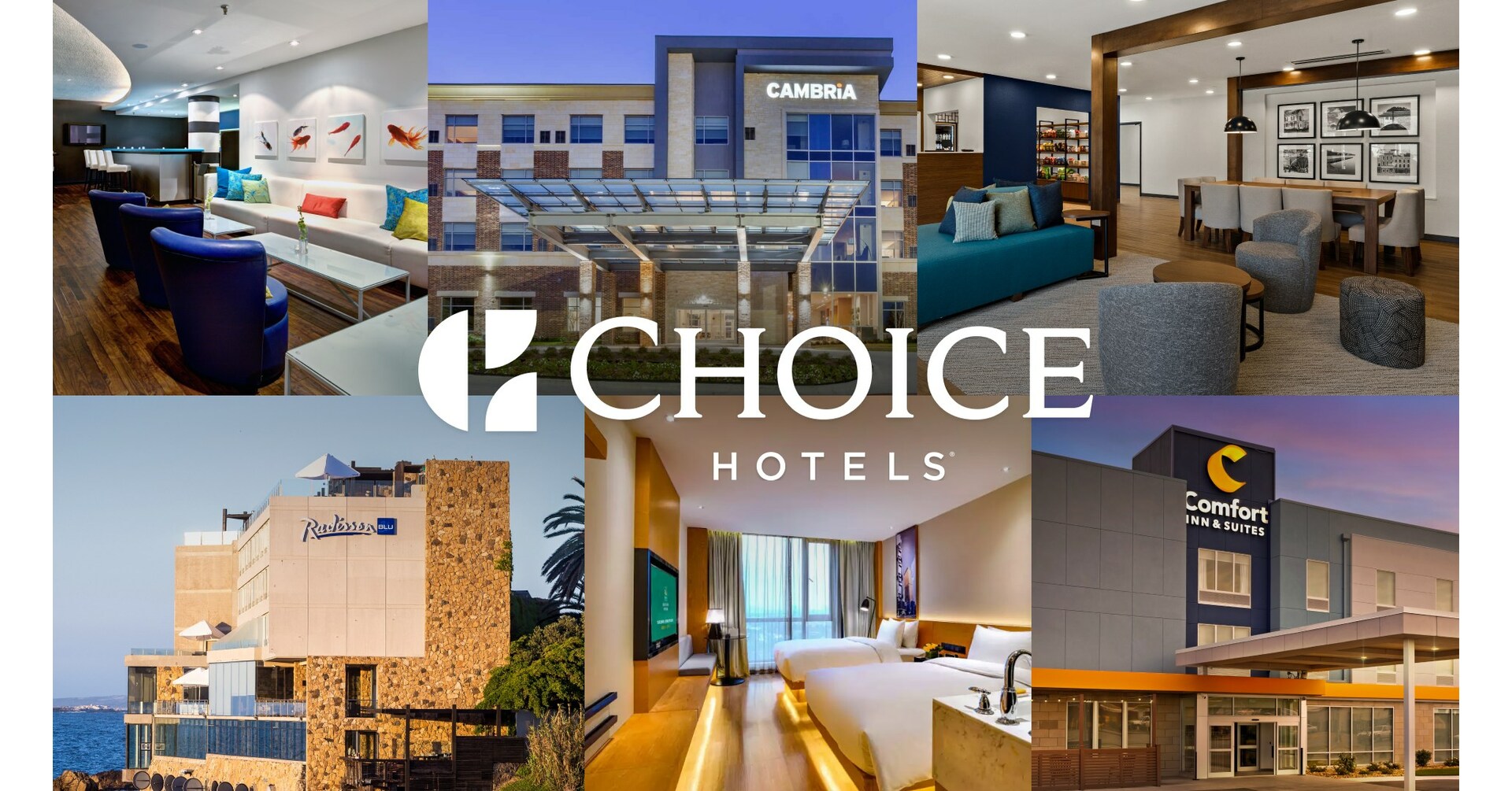
This story is part of Georgetown Faces, a storytelling series that celebrates the beloved figures, unsung heroes and dedicated Hoyas who make our campus special.
 Marc Fournier is the vice president of auxiliary services and real estate.
Marc Fournier is the vice president of auxiliary services and real estate.
Marc Fournier oversees Georgetown’s dining, retail, merchandise and hotel spaces and manages its real estate portfolio.
But growing up, he had a different ambition: He wanted to be a chef.
The vice president of auxiliary services and real estate started washing dishes in a nursing home at age 15. He attended culinary school in Providence, Rhode Island, and had stints as a line cook at Walt Disney World and a banquet maître de for weddings. By the end of culinary school though, Fournier realized his career wasn’t in the kitchen.
“The more I learned, the less I wanted to smell like garlic and shrimp and fish for the rest of my life,” he said.
Fournier pivoted to hotels and served in executive positions in the Crestline, Starwood and Hyatt hotels for nearly 20 years. In 2014, he joined George Mason University, where he was promoted to the associate vice president for real estate and business services. He picked up two master’s degrees in hospitality and real estate along the way.
A year before the COVID-19 pandemic, Fournier joined Georgetown as the vice president of auxiliary services, where he soon faced his toughest career challenge yet: leading the closure of campus and implementing the COVID-19 testing strategy to keep the community safe.
“The thoughtfulness and the way that we cared for the cura apostolica of the community and tried to figure out how to get everybody back in a thoughtful way and carry them through what was really a traumatic and awful experience … it was an amazing opportunity.”
In addition to his work on COVID-19, Fournier and his team worked on the acquisition of a new educational facility, 111 Massachusetts, on Georgetown’s Capitol Campus and the Car Barn on the Hilltop Campus. He is also leading renovations of Georgetown’s campus hotel, which is anticipated to open next year.
Fournier also joined the Ignatian Colleagues Program, where he learned more about Georgetown’s Jesuit identity, charism and tradition. He’s since taken the learnings to heart.
“I’ve had these defining moments in my life, and really Georgetown has been the best part of it,” he said. “Going through COVID-19 and learning about St. Ignatius and the values and the mission and what that means has sort of changed my DNA.”
Learn more about Fournier’s background as a chef, his biggest lesson from COVID-19 and how Georgetown helped him appreciate the little things.

My first job was at a nursing home: When I was a sophomore in high school, I told my mom I wanted to go to culinary school and be a chef. She’s like, ‘You’re crazy. You don’t want to do that. You have to work every holiday, every weekend.’ I said, ‘No, that’s what I want to do.’ She said, ‘Well, I’m going to get you a job right now.’ She worked at a nursing home as an activities director and got me a job washing dishes there, and it was awful. Washing dishes in a nursing home, no fun. But I enjoyed it, and I was like, you’re not going to break me. I grew into it and kept my eyes focused on culinary school and kept working my way up to better jobs in the kitchen.
I cooked at Disney World: I worked at Epcot in the kitchen. I was a line cook in [the] Germany and Canada [pavilions]. A lot of [food] was made in the commissary and brought over, but in Germany, schnitzels were one of the things you cooked to order. The tickets would come out of the machine, hit the floor like The Bear, just chaos. The expeditor would call out “schnitzel!” because schnitzels took the longest. I’d work the schnitzel station because I was pretty fast. I’d throw them in the skillet to cook them and while they cooked, we would plate up all the other dishes. I loved it. I love kitchens. I love production. I love a fast-paced environment.
Punching above my weight: The thing that resonates the most with me [in my Georgetown interview] was [a colleague] said to me, ‘Georgetown’s the type of place where we’re always punching above our weight.’ I love that. That’s me. I’m gritty. I’m an underdog.
My parents split up when I was in seventh grade, and my mom and I moved to a tougher neighborhood. A lot of people there didn’t go to college; it just wasn’t expected. But my mom and dad raised me to aim higher. I’ve always thought about it as punching above our weight. I reflected upon that, and I took the job here. My former self would never have imagined I would be here today.
 Fournier is leading renovations of Georgetown’s campus hotel. The hotel’s model unit opens in August and the hotel is anticipated to open in spring 2026.
Fournier is leading renovations of Georgetown’s campus hotel. The hotel’s model unit opens in August and the hotel is anticipated to open in spring 2026.
When I was the COVID-19 Testing Czar: This core group of gritty, hardworking people came together to help make this thing happen. It [required] all the leadership skills that I had in my body. All the brain power I had. The first eight months were chaos, trying to figure out what to do. But it was the best work I ever did. I learned a ton. I never worked so hard in my whole life. Hotels are hard. But [COVID-19] was two years and no days off working out of the basement. I remember my wife, thank God for her, kept bringing me food. Every day, we were like, OK, what’s happening right now? It just kept changing and evolving.
What I learned through the process: I learned that I can lead effectively in a different, more thoughtful way that is more aligned with the brand and mission and values of the institution. That it doesn’t always have to be this sort of linebacker approach to push your way up. You can carry people with you. And I learned that the experiences that I’ve had over my life and in my career have given me this leadership skill and personality to accomplish whatever anybody puts in front of me. I’m not afraid of anything. That experience gave me a fearlessness of whatever obstacle comes our way, we can get through it. We can get through it.

My experience in the Ignatian Colleagues Program: taught me that it is important to be grateful, because when you’ve experienced what it’s like to walk with the truly marginalized and truly poor, it is a much different experience than you think. When you go to the Dominican Republic to a batey where Haitian immigrants have no running water, no electricity, the malnourished salvaging out of a dump, it’s mind-numbing and a true reflection of the reality of what’s happening in the world. I’m so grateful I was able to experience that and carry it with me.
Through the program: I developed a project called the Ignatian Leadership Toolkit. Our brand is Georgetown. Our identity is St. Ignatius. Part of the culture are these words, these values and the mission itself. I try to articulate them in layman’s terms. The better we can understand them holistically, the better everybody’s going to feel about them. You feel like you belong when you understand the place that you work for. I started doing it at our COO meeting, and the intent is to create disciples who’ll take the toolkit and share it.

When I’m not working: I’ve been teaching myself guitar for 15 years. I play all kinds of stuff: Lumineers, Beatles, a little Zach Bryan. It’s got to be simple enough that I can do it. I love spending time with my wife. I love spending time with my daughter. I talk to her at least three times a week. We have a tight little family here, which is important and good.
What gets me out of bed in the morning: I think there’s home, and sometimes there are two homes. Georgetown is my little second home. I love the mission and the values and the work and what I’ve learned here. It feels like a home, a second home to me. I genuinely love the people here. The people who work for me, I absolutely adore. And the people I work for, I absolutely adore too. They say to see [God] in all things. The more I’m here, the more I see.
 Fournier (center) with Kelly Blevins, assistant vice president of real estate and university counsel (left); and Jennifer Graham Redd, assistant vice president of auxiliary business services (right).
Fournier (center) with Kelly Blevins, assistant vice president of real estate and university counsel (left); and Jennifer Graham Redd, assistant vice president of auxiliary business services (right).

